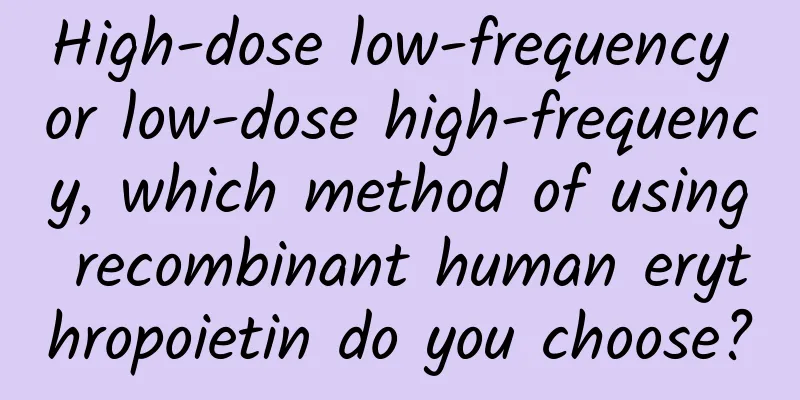What should women eat during menstruation?

|
For women, it is very important to pay attention to their diet during menstruation, because if they eat inappropriate food during menstruation, such as raw, cold food, spicy and irritating food, these will have a great impact on women's physical health, and even cause some abnormal phenomena in women's menstruation. There are inappropriate foods and there are suitable foods. So what should women eat during menstruation? 1. Before menstruation Supplement the nutrients required for physiological needs through diet: B vitamins, as well as vitamin A, vitamin C, and vitamin E. (1) Foods rich in B vitamins: wheat germ, pork, soybeans, peanuts, ham, black rice, animal liver, seaweed, kelp, milk, cereals, bananas, walnuts, etc. (2) Foods rich in vitamin A: animal liver, milk and dairy products, eggs, carrots, broccoli, spinach, lettuce, oranges, apricots, sweet potatoes, etc. (3) Foods rich in vitamin C: leeks, bell peppers, celery, cauliflower, tomatoes, spinach, cabbage, potatoes, snow peas, tangerines, oranges, grapefruits, grapes, strawberries, etc. (4) Foods rich in vitamin E: wheat germ oil, corn oil, peanut oil, sesame oil, walnuts, melon seeds, kiwi fruit, soybeans, spinach, rapeseed, corn, nuts, etc. 2. During menstruation You can appropriately supplement some warming foods or foods that ease menstruation and relieve pain. (1) Foods that warm the body: Women with a cold constitution can eat more foods that warm the meridians and dispel cold, such as dog meat, mutton, chestnuts, lychees, brown sugar, and ginger. (2) Foods that relieve dysmenorrhea: Women with dysmenorrhea can eat more foods such as spinach, celery, coriander, yam, carrots, grapes, kelp, black fungus, etc., which can promote blood circulation and relieve dysmenorrhea. (3) Others: If you have symptoms such as poor appetite and back pain during your period, you should choose foods that are nutritious, spleen-strengthening, appetite-stimulating, and easily digestible, such as jujube, Chinese yam, noodles, and coix seed porridge. 3. After menstruation After menstruation, especially for those with heavy menstruation, you can supplement protein, iron and minerals appropriately within 1-5 days after the menstruation ends. (1) Foods rich in protein and minerals: mainly include beans (including soybeans, black beans, etc.), milk (including cow's milk, goat's milk, etc.), seafood, animal offal, meat (including pork, beef, lamb, etc.), rice, etc. (2) Foods high in iron: Fish, lean meat, animal liver, animal blood, soybeans, spinach, etc. are rich in iron and have high biological activity and are easily absorbed and utilized by the human body. |
<<: I got pregnant during my period.
>>: How long after giving birth does it take to have your period?
Recommend
Can drinking soy milk every day help enlarge your breasts?
Soy milk is a common food in our lives. The main ...
Will the coronavirus Delta and Omicron merge into a more ferocious "new poison king"?
While the Omicron variant is worrying people, two...
Chest pain during 7 months of pregnancy
Many pregnant women will feel abnormal pain in th...
Breast pain during pregnancy
Their breasts are very important for the baby, so...
Symptoms of miscarriage during the first three months of pregnancy
In the first three months of pregnancy, pregnant ...
What medicine is used to protect the fetus and stop bleeding
If a woman sees blood in her underwear during pre...
What to drink for cold uterus
Uterine cold has a great impact on women's he...
What is photovoltaic industry? How to install photovoltaic panels?
Photovoltaic power generation is a technology tha...
To protect your stomach health, we recommend these three steps!
Many people think that the stomach is the happies...
Can empty follicles be detected by ultrasound?
Empty follicles are a relatively abnormal conditi...
How to treat pelvic inflammatory disease during menstruation
We all know that women's physical condition i...
Is it normal to stop bleeding on the first day after an abortion?
Vaginal bleeding in women is a very common condit...
Girls have acne on the nose
If girls feel that pimples are growing on both si...
Are blood pressure medications addictive? This is a typical misunderstanding of medicine!
Written by Xu Sijia (Kyoto University School of M...









